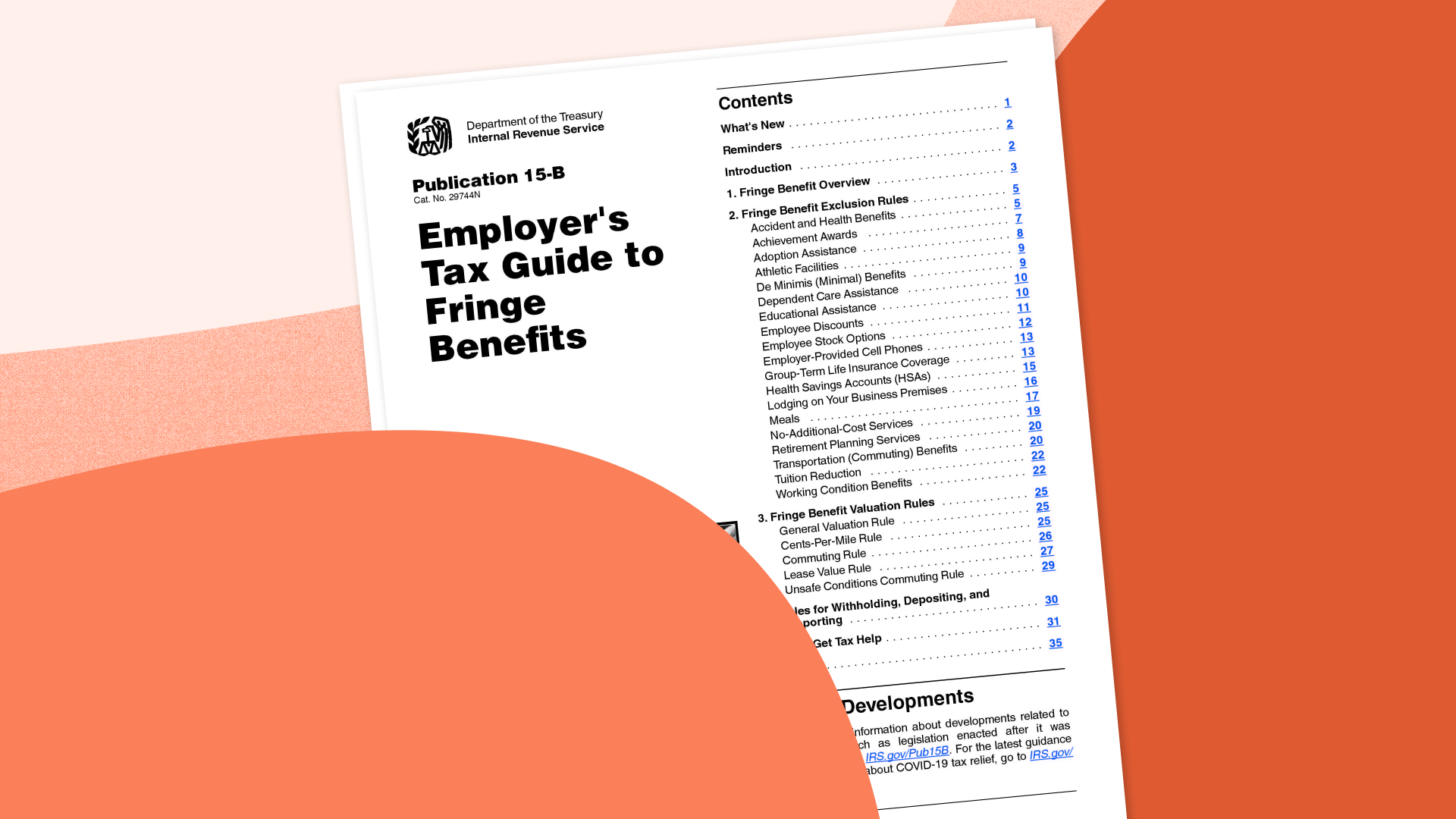The Basics of Small Business Payroll
When HR Runs Payroll
When Finance Runs Payroll
When Operations Runs Payroll
Simplifying Processes By Outsourcing Payroll
How Justworks Can Help
As a small business owner, your to-do list can seem never-ending. Even as you hire more employees and delegate accordingly, there are still plenty of tasks that need to be managed. One of them is payroll.
Now, in the early days of running your business, it might’ve made sense to handle payroll yourself. But as a business grows, an entrepreneur’s priorities change. That begs the question — who handles payroll in a company? Some may say it’s an HR or Finance task. Others might argue it should be handled by the Operations team. The truth is, there’s an opportunity for learning and growth no matter who runs payroll.
The Basics of Small Business Payroll
Before we dive into the different ownership options for small business payroll, let’s take a moment to break down what running payroll entails.
First, you’ll need to compile all the key information about your employees. This includes details like their legal name, address, social security number, salary or hourly rate, and tax withholding information. This can often be done by providing employees with Form W-4. Then, you’ll decide how often you’ll run payroll — weekly, bi-weekly, or monthly.
After that, you’ll calculate employee pay, as well as any applicable taxes and deductions. Once those calculations are complete, payroll can be run. Some choose to run payroll manually, but there are also many payroll software options out there to help simplify the task.
When you break it down, payroll isn’t that scary. Delegating payroll management to others in your company is possible, and maybe even necessary. After all, less time spent on payroll calculation means more time to focus on growing your business. But the question remains — which team is best designed to own running small business payroll?
When HR Runs Payroll
The Human Resources (HR) team typically owns many of the employee-related responsibilities of an organization. With that perspective in mind, it makes sense for payroll to fall under their purview as well. Consider the fact that HR manages the sensitive employee information that’s required to run payroll — legal names, addresses, social security numbers, salaries and hourly rates, and tax withholding information.
However, it’s also worth looking at how many responsibilities HR has. Because they have a high level of involvement with all employees, it might be difficult to prioritize tasks. Things like recruitment, hiring, onboarding, training, benefits admin, and compliance are all highly important. Depending on the level of HR efforts required in your organization, it might be worth looking at another team for payroll’s home base.
When Finance Runs Payroll
A company’s Finance team deals with — you guessed it — the financial aspects of the business. This often includes financial operations, budgeting, reporting, analysis, cash management, and more. Employees who are part of the Finance team at their organization are often skilled in taxes, accounting, or compliance (or perhaps all three). Considering their skillset and ownership of all things money in the company, it can make sense to delegate payroll management to the folks in Finance.
That said, the Finance team has the unique responsibility of managing the finances of the entire organization. There’s an enormous amount of effort that goes into finance management — along with its fair share of pressure and stress. Depending on where your company’s priorities lie, it might be more beneficial to find a different owner for payroll.
When Operations Runs Payroll
Payroll and Operations seem like a match made in heaven, right? The Operations team typically focuses on logistics and optimizing efficiency within the company. This can look like planning, controlling, purchasing, scheduling, quality control, and more. With all the process-oriented tasks they already manage, it seems natural to include payroll processing as part of the Operations team’s responsibilities.
One might argue, though, that Operations team members have enough to manage without payroll thrown into the mix. The scope of Operations spans many larger facets of an organization, and their roles require a certain level of strategy. Payroll management might feel a bit in the weeds in comparison.
Simplifying Processes By Outsourcing Payroll
An excellent option that small business owners have when it comes to payroll is outsourcing. These days, there are many payroll solutions on the market. User-friendly platforms like Justworks Payroll and others not only streamline small business payroll, but they also save you (and other employees) more time to focus on growing the business.
Payroll software often comes with features that make the entire process simpler. Think automated payments, tax form generation and filing, dynamic reporting, and more. Pricing can range depending on the features included, so it’s important to do your research when considering the options. But with a solid payroll solution, paying employees can be easier regardless of who handles payroll.
At the end of the day, you know your organization. Factors like company size, number of employees, team responsibilities, and future goals should all come into play when deciding how to manage payroll. There are likely multiple options for who should run payroll, so communicating with your employees is a crucial step in determining ownership of any process or task.
How Justworks Can Help
For small businesses, payroll management can be a main source of frustration and stress. But what if it didn’t have to be that way? Enter Justworks Payroll. With our user-friendly platform and powerful software, you can get payroll rolling in no time.
Paying your team on time becomes easier. The nitty-gritty of payroll compliance is made simpler. Plus, you’ll get access to time tracking, integrated HR tools, and benefits for all budgets. With everything in one place, you and your teams can save yourself the headaches and spend more time focused on what matters most. If you’re ready to grow your business with confidence, get started with Justworks Payroll today!
Learn more with Justworks’ Resources
Scale your business and build your team — no matter which way it grows. Access the tools, perks, and resources to help you stay compliant and grow in all 50 states.







